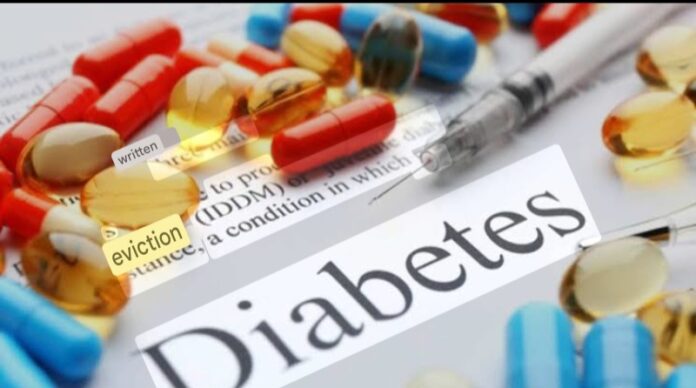…. 11.4 million citizens affected, treatment costs to N120,000 monthly, group pushes for higher sugary drinks tax to curb national health crisis.
By: Babagana Bukar Wakil, Maiduguri
As the world marks World Diabetes Day today, Corporate Accountability and Public Participation Africa (CAPPA) has endorsed the call by the Diabetes Association of Nigeria (DAN) urging the Federal Government to declare a national emergency on diabetes care and implement stronger healthy-food policies, including an upward review of the sugar-sweetened beverages tax.
In a statement signed by Robert Egbe, Media and Communication Officer, CAPPA, the organisation described as alarming the recent disclosure by the association’s president that an estimated 30,000 Nigerians die annually from diabetes, while as many as 11.4 million others are currently living with the debilitating condition, according to a media report.
The statement noted that these figures exceed the International Diabetes Federation estimate, which reports a prevalence of about 3.0 per cent in Nigeria, translating to roughly 2.99 million adults with diabetes.
CAPPA also expressed deep concern that the average monthly cost of diabetes management now ranges between N100,000 and N120,000, making sustained treatment inaccessible for many Nigerians. It warned that the rising costs, combined with widespread poverty, risk turning diabetes into a death sentence for millions.
This is yet another troubling statistic on the state of Nigeria’s noncommunicable diseases burden and the country’s public health system, CAPPA stated. It is no wonder that Nigeria’s life expectancy remains one of the lowest globally, according to the latest United Nations global health report.
The organisation emphasised that the growing diabetes burden, alongside the country’s poor life expectancy, highlights the urgent need for comprehensive policy measures targeting unhealthy diets, particularly the high consumption of sugar-sweetened beverages and other major diabetes risk factors.
In this context, we at CAPPA fully support the call by the Diabetes Association of Nigeria for the Federal Government to declare a state of emergency on diabetes care, and to significantly raise the sugar-sweetened beverages tax, with all proceeds channelled into strengthening the health sector, said Akinbode Oluwafemi, Executive Director, CAPPA.
He explained that CAPPA’s support is rooted in compelling evidence showing that unhealthy diets and sugary drinks fuel the rise of noncommunicable diseases. He added that the aggressive marketing and widespread availability of sugary drinks and highly processed foods are rapidly reshaping dietary habits across Nigeria.
Oluwafemi warned that without decisive policy action, Nigeria risks raising generations dependent on high-sugar beverages, with long-term consequences such as obesity, type 2 diabetes, cardiovascular diseases and premature death.
The statement stressed that tools such as an effective sugar-sweetened beverages tax, sodium reduction targets, front-of-pack labelling, and restrictions on marketing ultra-processed foods to children are globally recognised as effective in reducing noncommunicable disease burdens. However, it added that even the most robust prevention measures must be paired with a health system capable of supporting the millions already battling diabetes and other noncommunicable diseases.
This is why the Federal Government’s effort to channel revenues from taxes on tobacco, alcohol, and other harmful products into health financing is significant, Oluwafemi noted. Dedicating these revenues to noncommunicable disease prevention and management will provide the predictable funding Nigeria urgently needs, especially as treatment costs continue to plunge families into deeper poverty.
CAPPA reiterated that its ongoing campaigns for a sugar-sweetened beverages tax of at least N130 per litre and mandatory front-of-pack nutrition labelling align with global best practices. Higher taxes reduce consumption, drive product reformulation, and create revenue for critical health investments, while clear labels enable consumers to make informed dietary choices. Together, these measures will help shape healthier food environments and protect Nigerians from the predatory tactics of major food and beverage corporations.
This year’s World Health Organisation World Diabetes Day is themed Diabetes Across Life Stages, underscoring that diabetes affects individuals at every stage of life, including pregnancy.


